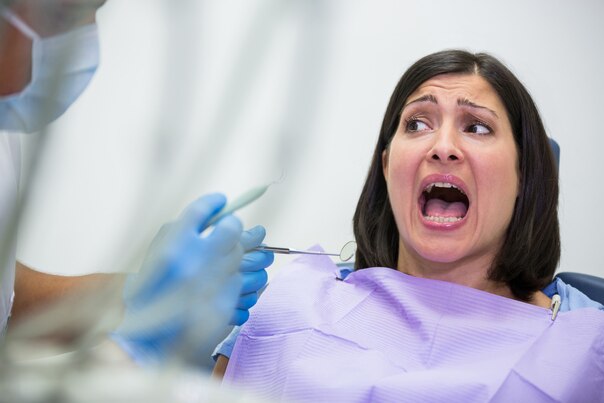Key Takeaways
- Gum graft surgery can recede over time if postoperative instructions are not followed.
- Weak gum tissue is a risk factor for graft failure.
- Following the dentist’s instructions for postoperative care.
- Unhealthy lifestyle habits contribute to gum recession.
The prospect of undergoing a gum graft procedure prompts a critical question: Can Gums Recede after a Gum Graft? Delving into this query involves unraveling the complexities of dental restoration. Understanding whether gums can still recede post-gum graft is crucial for individuals seeking cosmetic enhancement and a lasting solution to combat receding gums.
Natural Aging Process
Your gums naturally recede as you age, making your teeth susceptible to sensitivity and decay. It’s normal for gums to decrease as we age. Gums are a crucial protective barrier for teeth and their roots. However, the gum tissue can wear away over time, exposing the sensitive tooth roots and leaving them vulnerable to various dental problems.
Receding gums can occur due to a combination of factors. One of the main factors is the natural aging process. As we age, the bones supporting our teeth tend to weaken, leading to gum recession. Genetics can also play a role in the development of receding gums. Some people may be genetically predisposed to have thinner gum tissue, which increases the risk of gum recession.
Aggressive brushing is another factor that can contribute to gum recession. Brushing your teeth too hard or using a toothbrush with stiff bristles can cause the gum tissue to recede. Using a soft-bristled toothbrush and practicing gentle brushing techniques is essential to avoid damaging the gums.

Lack of Regular Dental Checkups
You must schedule dental checkups regularly to avoid the potential need for gum tissue grafts. Lack of regular dental checkups can seriously affect your gum health, including undetected gum recession. Early gum recession may go unnoticed, leading to more severe issues requiring surgical intervention, such as an alternative to gum grafts, without regular checkups.
Regular dental checkups are essential for early detection and intervention to prevent the need for gum tissue grafts in the future. During these checkups, your dentist will carefully examine your gums for signs of recession. They will measure the depth of your gum pockets and evaluate the overall health of your gum tissue. By identifying any signs of gum recession, your dentist can intervene promptly and prevent the condition from progressing to the point where a gum graft is necessary.
Lack of regular dental checkups can delay diagnosis and treatment of gum issues, potentially leading to more extensive and invasive procedures. Gum recession that is left untreated can cause further damage to the gum tissue and even the underlying bone structure. This can lead to tooth sensitivity, loss, and an increased risk of dental infections.
Regular dental checkups are critical in preventing and addressing gum recession before it progresses to requiring gum tissue grafts. By attending these checkups, you can ensure that any early signs of gum recession are identified and treated promptly, helping maintain your gum tissue’s health and stability. So, prioritize regular dental checkups to safeguard your gum health and avoid needing gum grafts.
Insufficient Oral Care: Can Gums Recede after Gum Graft?
Neglecting proper oral care can contribute to the receding of a gum graft over time. Poor oral care, including inadequate brushing, flossing, and overall hygiene, can help the success and longevity of a gum grafting and healing procedure. Gum grafts are commonly performed to treat gum recession, where the gum tissue surrounding the teeth pulls back, exposing the tooth roots. During the gum grafting procedure, tissue is taken from another area of the mouth, usually the palate, and grafted onto the receded gum line.
However, the gums can recede after gum graft if oral care practices are not maintained after the surgery. Brushing too aggressively or using a hard-bristled toothbrush can cause trauma to the graft site, leading to its deterioration. Inadequate flossing can result in the buildup of plaque and bacteria, increasing the risk of infection and subsequent graft failure. Poor oral hygiene habits also contribute to the development and progression of gum disease, which can further compromise the integrity of the gum graft.

It is crucial to follow proper oral care practices to prevent the receding of a gum graft. Brush your teeth twice daily with a soft-bristled toothbrush, use fluoride toothpaste, and floss daily for optimal dental health. Regular dental checkups and professional cleanings are also essential to monitor the health of the gum graft and address any potential issues early on. By maintaining good oral hygiene, you can significantly improve the long-term success of your gum grafting procedure and protect the health of your gums.
Complications in Healing
If you don’t properly care for your gum graft, complications in healing can occur. It is essential to be aware of potential complications following gum graft surgery. While the procedure is generally safe and effective, there are risks involved. Complications in healing can include infection, graft failure, and the graft receding over time.
Infection is a potential complication that can delay the healing process. Signs of infection include increased pain, swelling, redness, and discharge from the surgical site. If you experience these symptoms, you must immediately contact your dentist or periodontist for evaluation and treatment.
Graft failure is another possible complication. Insufficient integration of the graft with the surrounding tissues or inadequate blood supply to the graft site are the potential causes of this issue. Factors that can increase the risk of graft failure include smoking, poor oral hygiene, and certain medical conditions.
Lastly, the gum graft may recede over time if proper oral care is not maintained. You must follow your dentist’s postoperative instructions, including good oral hygiene practices and regular dental visits, to prevent this from happening. It is essential to brush and floss gently, avoid tobacco products, and attend follow-up appointments to monitor the healing process and address any complications.
Weak Gum Tissue
If you frequently experience gum recession, it may be a sign of weak gum tissue. Soft gum tissue can occur due to over-aggressive brushing, orthodontic treatment, poor hygiene, and genetics. When the gum tissue is fragile, it becomes more susceptible to recession, exposing the roots of the teeth and increasing the risk of decay, sensitivity, and bone loss.

Gum graft surgery may be recommended to address weak gum tissue and prevent further damage. This procedure involves taking tissue from another part of your mouth, such as the roof of your mouth or nearby gum tissue, and grafting it onto the areas with recession. Gum graft surgery aims to thicken the gum tissue and create a protective seal around the teeth.
It is essential to note that gum graft surgery is not a guaranteed solution for weak gum tissue. While it can effectively repair gum recession and prevent further damage, gum graft failure is possible over time. Factors such as poor oral hygiene, smoking, underlying medical conditions, and inadequate postoperative care can contribute to the loss of the graft.
Following postoperative instructions provided by your dentist or periodontist is crucial to maximize the success of your gum graft surgery and minimize the risk of graft failure. These instructions may include proper oral hygiene practices, avoiding certain foods and activities that can disrupt the graft, and attending regular follow-up appointments.
Graft Rejection
Taking proper care of your gum graft is essential to prevent rejection. While gum grafts are generally successful, there is a risk of rejection, which occurs when the body’s immune system identifies the graft tissue as foreign and attacks it. Following your dentist’s instructions for postoperative care is essential to minimize graft rejection chances. Here are four factors that can contribute to graft rejection:
- Inadequate oral hygiene: Poor oral hygiene can lead to infection and inflammation, increasing the risk of graft rejection. Maintaining good oral hygiene practices, such as brushing and flossing gently around the graft area, is crucial.
- Smoking: Smoking can impair blood flow and hinder the healing process, making the graft more susceptible to rejection. Quitting smoking is highly recommended before and after the gum graft surgery.
- Poor nutrition: A balanced diet rich in vitamins and minerals is essential for proper healing. Malnutrition can weaken the immune system and compromise the success of the graft.
- Excessive force on the graft: Applying excessive force on the graft, such as biting down on hard foods or using extreme pressure while brushing, can disrupt the healing process and increase the risk of graft rejection.
Chronic Teeth Grinding
To prevent gum recession over time, managing chronic teeth grinding involves wearing a night guard. Regular teeth grinding, also known as bruxism, can result in excessive pressure on the teeth and gum tissue, leading to gum recession over time. The constant grinding and clenching of teeth stress the gums, causing them to recede. Acidic and sugary food and drinks can damage teeth, causing sensitivity, pain, decay, and gum recession.
Wearing a night guard can help alleviate the pressure on the teeth and gums during sleep, reducing the likelihood of gum recession. Night guards are custom-made devices that fit over the teeth, acting as a protective barrier. They help to distribute the forces generated by grinding and clenching, preventing excessive pressure on the gums.

In addition to wearing a night guard, addressing the underlying causes of bruxism is essential. Stress, anxiety, and misaligned teeth can contribute to chronic teeth grinding. Managing stress through relaxation techniques, seeking therapy, and addressing dental misalignment issues can help reduce the frequency and intensity of teeth grinding, further protecting the gums from recession.
Poor Diet
How can a poor diet contribute to gum recession over time? Well, it is essential to understand that what you eat significantly affects your overall gum health. Here are four ways that a poor diet can contribute to gum recession:
- Lack of essential nutrients: A diet lacking essential nutrients, such as vitamins and minerals, can weaken your gum tissues and impair their ability to heal correctly. A gum recession is more likely due to this.
- Increased inflammation: Consuming a diet high in processed foods, sugary snacks, and sweetened beverages can lead to chronic inflammation in your body, including your gums. Inflammation can damage the gum tissues and contribute to gum recession.
- Weakened immune system: A poor diet lacking fruits, vegetables, and other nutrient-rich foods can weaken your immune system. A weakened immune system makes it harder for your body to fight off infections, including gum disease, which can lead to gum recession.
- Poor oral hygiene habits: A poor diet often goes hand in hand with poor oral hygiene habits. Neglecting proper brushing and flossing can allow plaque and bacteria to build up on your teeth and gums, increasing the risk of gum disease and gum recession.
Systemic Diseases and Unhealthy Lifestyle Habits
If you have systemic diseases or engage in unhealthy lifestyle habits, these factors can contribute to gum recession over time. Gum recession occurs when the gum tissue pulls away from the teeth, exposing the roots and potentially leading to tooth sensitivity, decay, and even tooth loss. While gum graft surgery can help restore the gum tissue and prevent further damage, it is crucial to address the underlying causes to ensure long-term success.
Systemic diseases, such as diabetes and HIV/AIDS, can affect the body’s immune system and increase the risk of gum problems. These diseases can compromise the body’s ability to fight infections, including those in the gum tissue. As a result, the gums may become more susceptible to inflammation, disease, and recession.
Unhealthy lifestyle habits, such as aggressive brushing, poor oral hygiene, and smoking, can also contribute to gum recession. Aggressive brushing can wear away the gum tissue, leading to its recession over time. Poor oral hygiene allows plaque and bacteria to accumulate, causing gum inflammation and recession. Smoking reduces blood flow to the gums, impairs healing, and weakens the immune system, making the gums more prone to recession.
It is essential to manage these conditions effectively to prevent gum recession associated with systemic diseases and unhealthy lifestyle habits. It is crucial to take charge of blood sugar levels in diabetes, practice impeccable oral hygiene, and quit smoking as soon as possible. Regular dental checkups and professional cleanings can help identify and address gum problems early on.

Gum Grafting: Transforming Smiles with Precision
Gum grafting is an effective treatment option for individuals experiencing periodontal concerns. This procedure, often recommended by dental specialists like periodontists or oral surgeons, involves the transplantation of a piece of tissue, commonly a flap of skin, from one part of the mouth to another to address lost tissue. The basic steps of gum grafting include administering dental anesthesia to ensure a pain-free experience for the patient. The surgeon delicately grafts the selected piece of gum tissue onto the affected area using precise surgical techniques.
To manage discomfort and promote healing, prescribed pain medication and anti-inflammatory medication may be part of the aftercare guidelines. While some postoperative effects, like mild swelling and bruising, are expected, excessive bleeding is uncommon. The recovery period is essential for the benefits of gum grafting to manifest fully, ultimately leading to restored gum health, increased confidence in one’s smile, and an effective method for people grappling with periodontal issues.
Final Thoughts
While entrusting your oral health to a gum specialist or periodontal specialist is pivotal, particularly for procedures like dental implants or grafting with human donor tissue, it’s essential to be aware that gums can recede after gum graft is a consideration. Ensuring the success of these interventions relies on the expertise of professionals who specialize in preserving and enhancing healthy gum tissue. Regular consultations with these specialists and a commitment to recommended care can contribute significantly to the longevity and well-being of your oral health.

